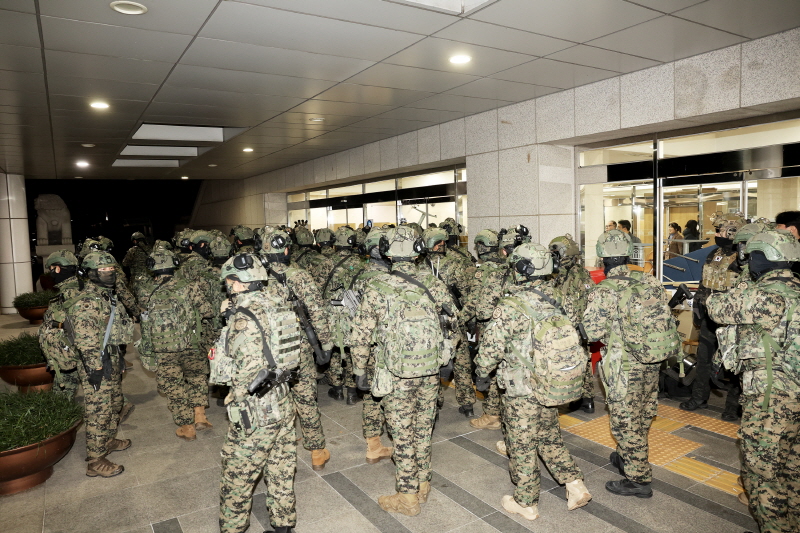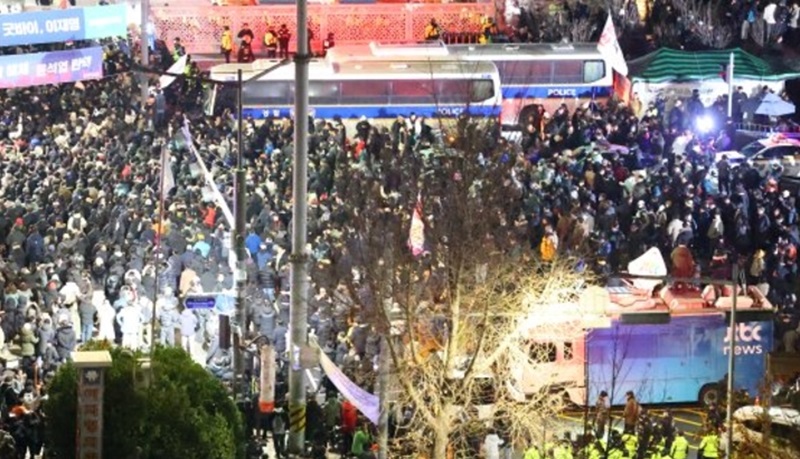[Special editorial]
In the early hours of November 3, Korean Americans were shocked by the news from South Korea. It was due to President Yoon Suk Yeol’s sudden declaration of martial law.
The reappearance of the term ‘martial law’ after 45 years left the Korean-American community not only surprised but also bewildered. No one could have predicted that something like this, which seemed like it could only happen in a politically backward country, would occur in 21st-century South Korea.
It even evoked a sense of despair, questioning whether the national level of South Korea had sunk this low.
It was a relief that the martial law was lifted just six hours after they were announced. The National Assembly quickly passed a resolution demanding the lifting of the martial law, and President Yoon accepted it.

However, the aftermath of this situation is unlikely to settle down easily. President Yoon claims that the declaration of martial law was an act of “national salvation.” Yet, the Korean political scene is likely to become even more chaotic, and there are concerns about a tarnished national image internationally.
Major American media outlets covered the martial law news as breaking stories. This is because South Korea is not only a key ally of the United States but also because many Americans are interested in Korea. However, some of the articles used words like “shocking,” “authoritarian,” and “bizarre measures” to describe the situation.
It feels as though the fragile political structure of Korea and the failings of its politics are being subtly criticized. Both the ruling and opposition parties, criticized for their backwardness, should deeply reflect on this.
There are concerns about how Americans will perceive South Korea as a result of this political fiasco. Koreans in the U.S. are simply embarrassed by the occurrence of such an irrational situation.
The remarkable development of South Korea is a great source of pride for Koreans in America. South Korea has grown into the world’s 10th largest economy, making large-scale investments in the United States, and has built an image as a culturally advanced nation, represented by ‘K-pop,’ ‘K-dramas,’ and ‘K-food.’ The growing interest in South Korea has had a positive effect on raising the status of the Korean community. As a result, the number of visitors to Koreatown has also increased.
However, there are concerns that the image of Korea, which has been painstakingly built over time, could be tarnished by this incident. It has revealed that Korea has not developed an internal structure to match its external growth.
Martial law is a measure that grants the president emergency powers in the event of war, a state of emergency, or a comparable national crisis.

Therefore, even though it was lifted after just six hours, the declaration of martial law itself sends a deeply troubling message. It raises serious questions about the stability of Korea’s political system and its ability to manage crises without resorting to extreme measures. This event, though short-lived, has the potential to weaken the image of Korea as a modern, democratic nation in the eyes of the international community.
In his speech announcing the martial law declaration, President Yoon emphasized that “we will save the free Republic of Korea, which is falling into the abyss of ruin,” and described it as an “inevitable measure to ensure that we pass on a proper country to future generations.” However, this has only resulted in a decline in the country’s image.
Overseas Koreans hope for the continued development of their homeland, as the strength of their country can serve as a solid foundation. Situations like this, where the Korean diaspora has to worry about Korea’s political situation, should never happen again.




